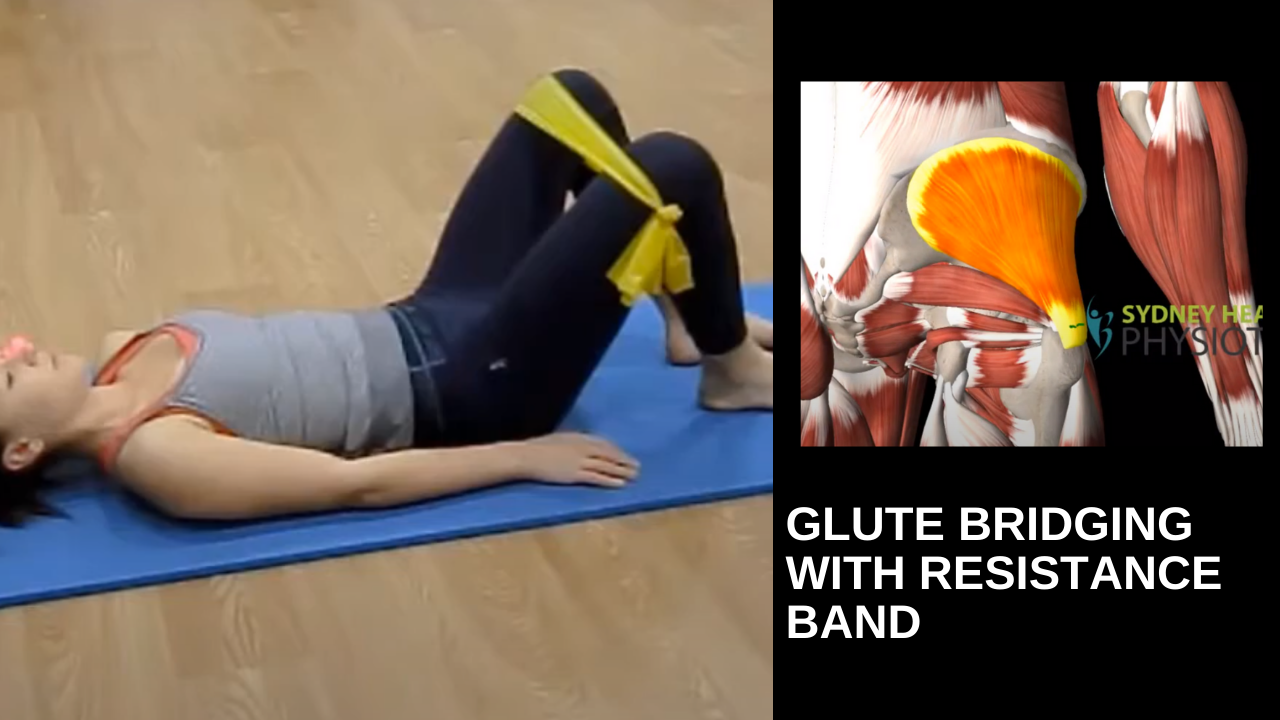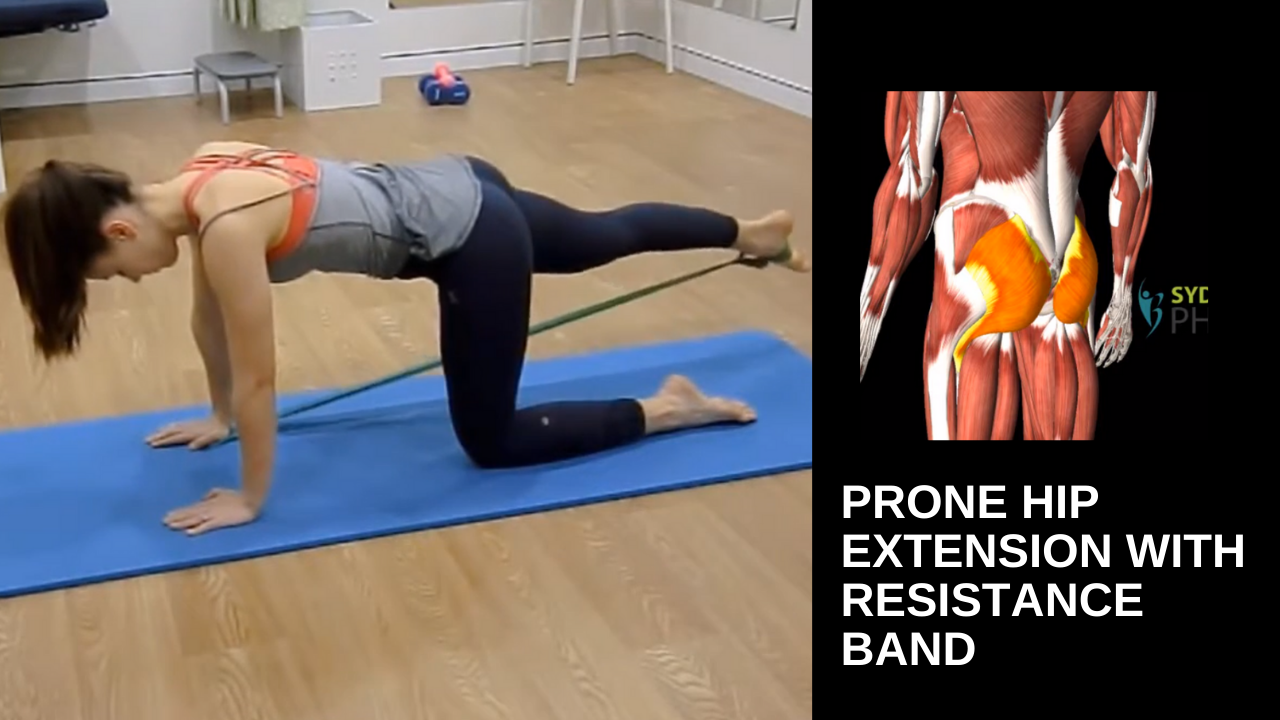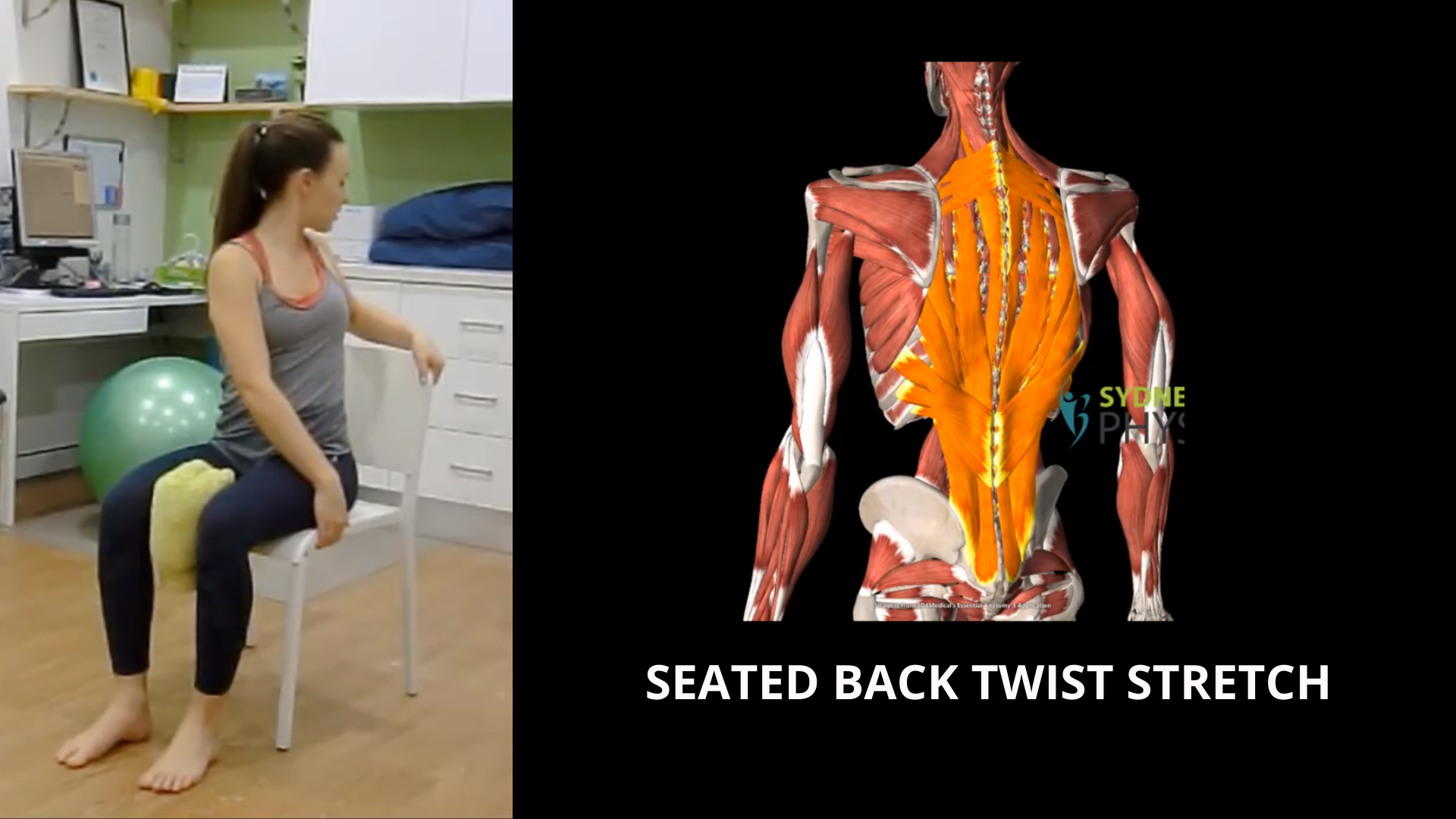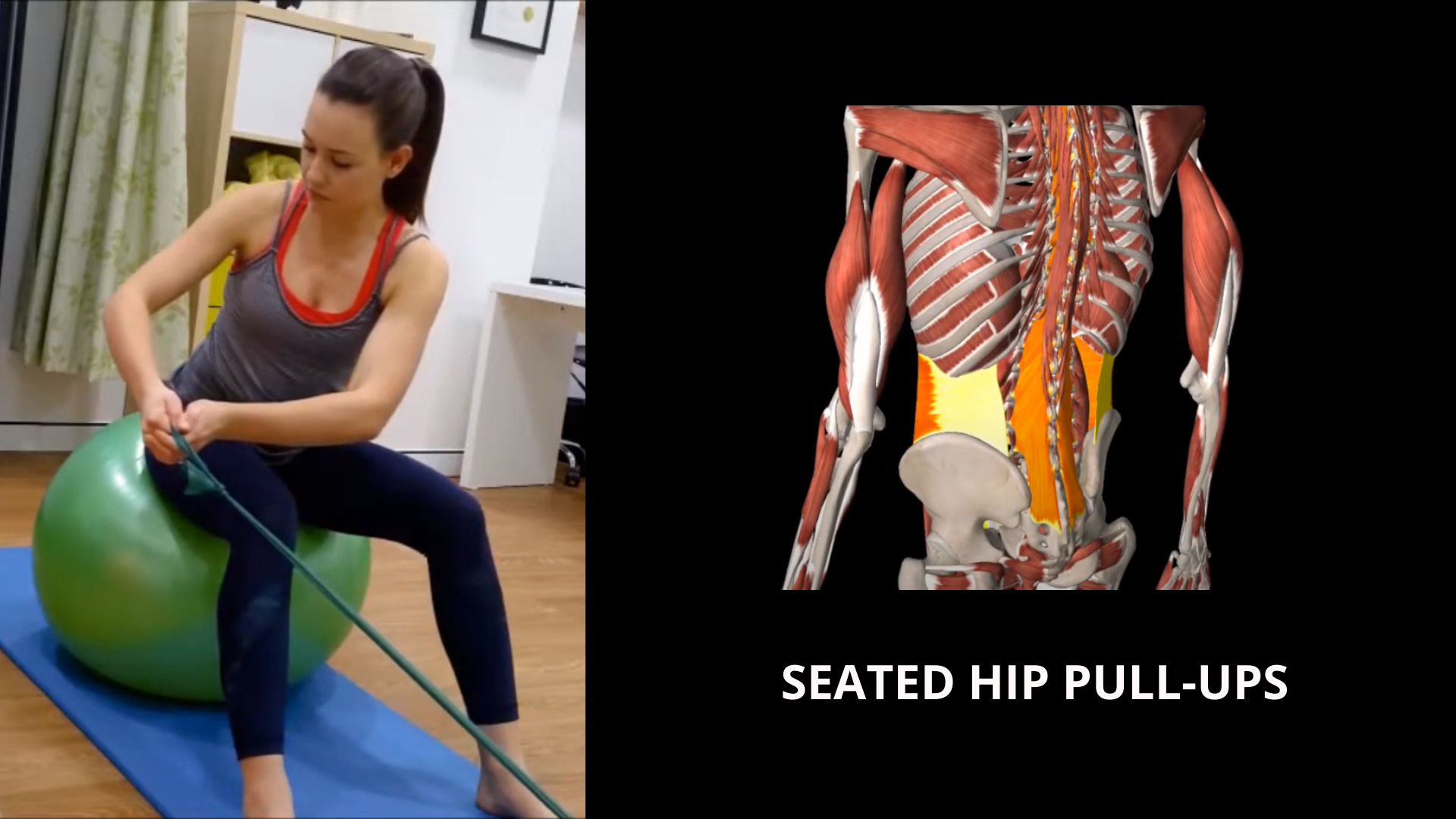Core activation
This supine core exercise targets deep abdominal muscles to support and protect the lower back. Ideal for anyone with back pain, desk workers, and individuals aiming to enhance core stability, it strengthens the core, reduces strain, and promotes better posture and back health.
Sidelying hip clam shell
The sidelying clamshell exercise strengthens the hip gluteal muscles, enhancing balance and stability. Perfect for individuals recovering from hip injuries, athletes, and those aiming to improve lower body strength, this exercise supports hip alignment, aids in injury prevention, and boosts functional movement.
Glute bridging with resistance band
Supine glute bridges with a band around the legs activate and strengthen the hip glutes, essential for back pain prevention and improved stability. Ideal for those with lower back discomfort, athletes, and individuals seeking core and hip support, this exercise promotes strong glutes to protect the lower back and enhance posture.
Bridging on ball
The glute bridge on a stability ball engages and strengthens the glutes and core, promoting balance and back support. Ideal for individuals aiming to improve hip stability, reduce lower back strain, and enhance overall core strength, this exercise builds functional stability and boosts glute activation.
Prone hip extension with resistance band
The 4-point kneeling hip extension with a resistance band targets glute and hip strength, improving stability and control. Ideal for athletes, those rehabbing hip or lower back issues, and anyone looking to enhance core support, this exercise promotes hip alignment and balanced muscle activation.
Seated core and hip hold
Sitting on a stability ball for hip flexor activation engages the core and strengthens pelvic floor endurance, supporting posture and stability. Ideal for individuals seeking improved balance, core control, and lower body strength, this exercise enhances core endurance and promotes pelvic alignment.
Core plank with ball roll
The hip and back advanced strengthening exercise targets core stability and lower body strength, essential for supporting functional movement and reducing injury risk. Ideal for newly pregnant women who are recovering from back issues, and anyone looking to improve overall stability. This exercise enhances hip power and back endurance for improved performance and resilience.
Running man with trunk rotation
The Running Man with Trunk Rotation exercise activates and strengthens the side glute muscles, improving hip stability and core control. Perfect for runners, athletes, and individuals looking to enhance lateral hip strength, this dynamic movement promotes balance, coordination, and injury prevention in the lower body.
Seated back twist stretch
The seated back twist stretch relieves tension and improves mobility in the spine, making it ideal for office workers who sit for extended periods. This stretch promotes spinal flexibility, reduces stiffness, and supports better posture, helping you feel more comfortable throughout the day.
Ball hamstring bridge and roll
The hamstring bridge on a gym ball strengthens the hamstrings and glutes, crucial for stability and injury prevention in soccer players. This exercise is ideal for rehabbing and conditioning, promoting hamstring resilience, balance, and power essential for peak performance on the field.
Seated hip pull-ups
The seated-on-ball pull-ups against a resistance band exercise targets back and hip strength, making it effective for rehabilitation. Ideal for improving stability and control, this movement supports back alignment, strengthens hip muscles, and enhances core engagement for a balanced recovery.
Lunge forward trunk turn
Lunges with trunk rotation while holding a ball enhance knee and back coordination, promoting stability and control. Ideal for building lower body strength and core engagement, this exercise supports knee alignment, improves balance, and strengthens rotational movement for a well-rounded functional workout.
Core stability and control
How core muscles are protectors of your spine, and how do you make sure that their natural muscle tone supports your posture. The key is not to consciously keep your core activated - that is a very outdated. The key is to have that core muscle tone so it supports you without thinking about. That is core stability and core control!
Better sports performance with controlled and efficient movements
Controlled, smooth movement is essential for preventing musculoskeletal (MSK) pain, as it minimizes strain on joints and muscles. When movement is well-coordinated, it reduces the risk of overloading specific areas, enhancing balance and stability. Developing movement control promotes joint alignment, prevents injury, and supports long-term physical health.














